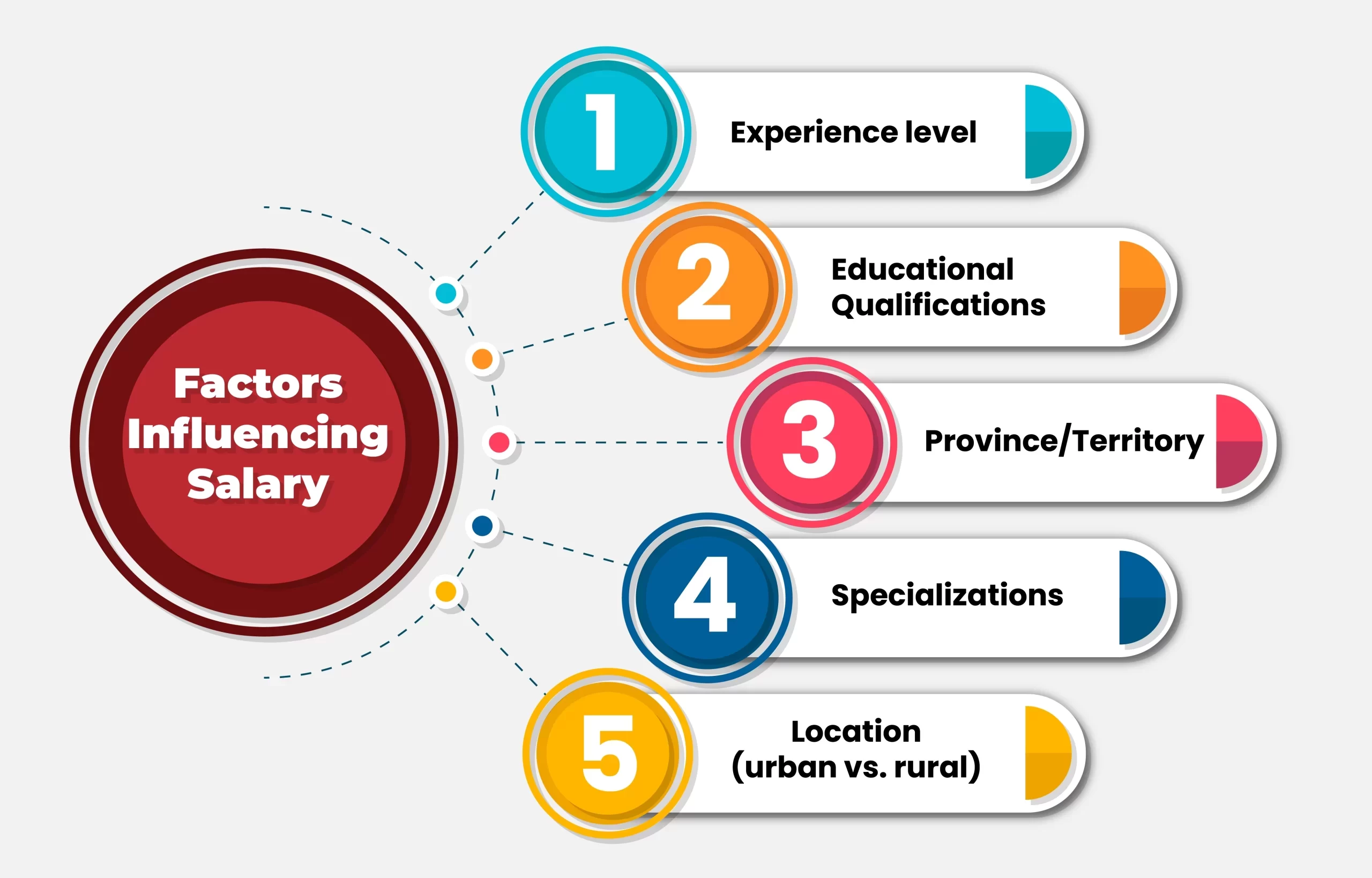Teaching jobs in Canada have grown in demand as Canada has come to symbolize a leading education system in the world for years. Thanks to its superior quality standards, varied curriculum, and multicultural setting, it brings students from all parts of the world.
The solid educational foundation has innately created a persistent demand for qualified educators. Because it upholds academic standards, Canada is a widely chosen destination for teachers from all over the globe.
Due to a diverse and multicultural society, the demand for qualified educators has been experiencing steady growth. Those in the educational field in Canada find promising and meaningful chances, regardless of their educational level.
Let’s take a detailed look at the teaching jobs in Canada.
Table of Content
1Are Teaching Jobs in demand in Canada?2Types of Teaching Jobs in Canada3Teaching Jobs in Canada Requirements4Teaching Jobs in Canada for Indian Teachers5Teaching Jobs in Canada with Visa Sponsorship6Teachers Salary in Canada7How to Get a Teaching Job in Canada from India8Conclusion9Frequently Asked Questions
Are Teaching Jobs in demand in Canada?
Yes, teaching jobs are in demand in Canada. The main reasons are growing student population, increasing number of international students, and shortage of qualified educators in certain regions.
Demand is mostly high for primary and secondary school teachers, special education teachers, and English as a Second Language (ESL) instructors. The provinces like Ontario, British Columbia, and Alberta are often report more job openings due to larger populations and expanding school programs.
The international educators who has recognized qualifications and experience also have good opportunities across Canada.
Types of Teaching Jobs in Canada
The main types of teaching jobs in Canada are:
1. Primary Teaching Jobs in Canada
2. Secondary Teaching Jobs in Canada
3. English Teaching Jobs in Canada
These teaching positions in Canada are categorized based on different levels of education. Let’s look at each of these in detail below:
Primary Teaching Jobs in Canada
Primary teaching jobs focus on educating young children, typically from kindergarten to grade 6. These teachers play a vital role in laying the foundation for lifelong learning. The demand for primary teachers is high, especially in urban areas where schools are often overcrowded.
With the emphasis on early childhood education, provinces like Ontario and British Columbia are particularly in need of primary educators.
Secondary Teaching Jobs in Canada
Secondary teachers work with students in grades 7 through 12 and specialize in specific subjects. This level of education is crucial as students prepare for post-secondary education or enter the workforce.
Math, science, and languages are consistently in demand, making these areas a focus for job seekers.
English Teaching Jobs in Canada
With Canada’s multicultural landscape, there is a significant demand for English teachers, especially for ESL (English as a Second Language) positions. Many immigrants and international students require English proficiency to succeed in their studies and careers.
There are numerous private language schools and community programs that offer opportunities for qualified English teachers.
Teaching Jobs in Canada Requirements
If you want to teach in Canada, the requirements can change depending on which province or territory you plan to work in, what grade level you’re interested in (like elementary or high school), and whether you’re a Canadian citizen or permanent resident.
But there are some basic rules that apply everywhere, so let’s take a look at them:
1. Education
First, you usually need a bachelor’s degree in education (B.Ed.) to become a teacher. If you want to teach in high school, you might also need a degree in the subject you’ll be teaching (like math or science).
2. Provincial Teaching Certificate
Every teacher needs a teaching certificate from the province or territory where they want to work. To get this, you’ll need to complete a teacher education program and pass any required exams, which are key steps in obtaining Teaching Certification in Canada.
3. Language Proficiency
You need to be fluent in English or French, depending on the province you’re in. Some places may even want you to be bilingual (speak both languages).
4. Character References and Background Checks
Schools want to know you’re trustworthy, so you’ll need to provide character references and pass a criminal background check. Some provinces might also ask for a child abuse registry clearance.
5. Teaching Experience
Although it’s not always required, having some recent teaching experience can help you stand out when applying for jobs.
6. Familiarity with Canadian Curriculum
It helps if you’re familiar with how Canadian schools work and understand their curriculum. This gives you an advantage in the hiring process.
7. Fitness to Teach
You’ll need to show you’re both physically and mentally fit to teach. Some provinces may ask for specific assessments to make sure you’re ready for the job.
Teaching Jobs in Canada for Indian Teachers
Canada is a top destination for Indian teachers seeking teaching jobs and international career opportunities. With its strong education system and high demand for qualified educators, Indian teachers can find rewarding teaching positions in both public and private schools.
Here’s an overview of Canadian provinces with the highest demand for Indian teachers:
| Location | Job prospects status |
| Manitoba | Very good |
| New Brunswick | Good |
| Newfoundland and Labrador | Good |
| Northwest Territories | Good |
| Nunavut | Good |
| Ontario | Good |
| Quebec | Very good |
| Saskatchewan | Good |
| Yukon Territory | Very good |
Teaching Jobs in Canada with Visa Sponsorship
Teaching jobs in Canada with visa sponsorship are now available for qualified international educators. Schools in Canada are hiring teachers from abroad when there are not enough local candidates, and many roles include support for work permits.
Candidates with recognized qualifications and teaching experience have better chances to migrate to Canada. These visa-sponsored roles are offered across different levels of education, giving international teachers stable opportunities in Canada.
The main teaching jobs in Canada with the visa sponsorship include:
1. Primary School Teacher
2. Secondary School Teacher
3. English as a Second Language (ESL) Teacher
4. Early Childhood Educator (ECE)
5. Special Education Teacher
6. Math and Science Teacher
7. French Language Teacher
8. Arts and Music Teacher
9. Physical Education Teacher
10. Vocational or College Instructor
Teachers Salary in Canada
On average, teachers salaries in Canada range between CAD 50,000 and CAD 90,000 annually, but the amount varies based on several factors, including location, level of education, and years of experience.
Here’s a table highlighting the average salary for teaching jobs in Canada for different positions:
| Teaching Job Roles | Average Salary per year (CAD) |
| Early Childhood Educator | $35,000 – $55,000 |
| Elementary School Teacher | $50,000 – $85,000 |
| Secondary School Teacher | $55,000 – $95,000 |
| Special Education Teacher | $50,000 – $85,000 |
| Teaching Assistant | $20,000 – $35,000 |
| ESL (English as a Second Language) Teacher | $40,000 – $65,000 |

How to Get a Teaching Job in Canada from India
To get a teaching job in Canada from India, you’ll need to follow a structured process that includes both meeting immigration requirements and securing teaching qualifications recognized in Canada.
Here’s how you can get a teaching job in Canada from India:
1. Assess Your Eligibility to Teach in Canada
- Educational Qualifications: Ensure that your teaching qualifications meet Canadian standards. You will need at least a bachelor’s degree in education or a related field.
- Educational Credential Assessment (ECA): Have your educational qualifications assessed by an approved agency like WES (World Education Services) to ensure they meet Canadian equivalency standards.
- Teaching Certification: Each Canadian province and territory has its own teacher certification board. You’ll need to apply to the relevant board to have your qualifications and experience reviewed. Examples include:
- Ontario College of Teachers (OCT) for teaching in Ontario
- British Columbia Teacher Regulation Branch (TRB) for teaching in British Columbia
- Teacher Certification Branch for Alberta
2. Meet Immigration Requirements
- Choose an Immigration Pathway: You will need to obtain a work permit or permanent residency to teach in Canada. The main immigration pathways are:
- Express Entry: A points-based immigration system where factors like education, work experience, and language skills are assessed. High scores improve your chances of receiving an Invitation to Apply (ITA) for permanent residency.
- Provincial Nominee Program (PNP): Some provinces may prioritize educators in specific streams, which can lead to a faster path to permanent residency.
- Atlantic Immigration Program (AIP): Targeting regions like Nova Scotia and New Brunswick, this program allows skilled workers to immigrate to Canada and fill local job shortages, including teaching roles.
3. Prepare for Licensing Requirements
- Teacher Certification Exam: Some provinces require candidates to pass provincial exams or specific subject-matter exams, such as the OCT exams for Ontario teachers.
- Language Proficiency: Teachers are typically required to demonstrate language proficiency in either English or French, depending on the province. You may need to take language tests like the IELTS (for English) or TEF (for French).
4. Research Provincial Job Markets
- Demand for Teachers: Certain provinces have a high demand for specific teaching roles, like STEM teachers, special education, or early childhood educators. Research which provinces are actively hiring teachers in your subject area.
- Job Search Websites: Use job boards like Job Bank Canada, Indeed.ca, or provincial education websites to explore current teaching vacancies.
5. Apply for Teaching Jobs
- Create a Canadian-style Resume and Cover Letter: Tailor your resume to Canadian standards, highlighting your teaching experience, qualifications, and skills.
- Apply Online: Submit applications for available teaching positions in schools or school districts.
- Networking: Reach out to school boards or Canadian teachers on LinkedIn to network and learn more about job opportunities.
6. Apply for a Work Permit or Permanent Residency
- Once you have a job offer from a Canadian school, you’ll need to apply for a work permit:
- Temporary Work Permit: You may be eligible for a temporary work permit through the Labour Market Impact Assessment (LMIA) process. Your employer will need to demonstrate that there are no qualified Canadian citizens or permanent residents for the role.
- Permanent Residency via Express Entry or PNP: If you’re applying through Express Entry or a Provincial Nominee Program, you may be able to secure permanent residency, which allows you to work without needing a work permit.
7. Get Certified and Start Teaching
- After arriving in Canada, complete any final certification steps required by the province you’re teaching in. Once certified, you’ll be ready to begin your teaching career.
Conclusion
The demand for teaching jobs in Canada for Indians is not only a reflection of the need for educators but also an invitation for talented individuals from around the world to join this fulfilling profession. With the right qualifications, determination, and support, you can turn your dream of teaching in Canada into a reality.
So, are you ready to take the leap? Start your journey today, and explore the vast opportunities that await you in Canada’s education system! With the help of CanApprove you can definitely be a part of this incredible opportunity in Canada. Our Canada immigration consultants are one click away. Schedule your consultation now!
Frequently Asked Questions





